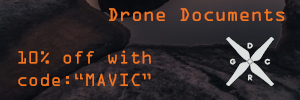P2V.
Recent experiences lead me to believe that that silly old K-index is really quite important.
First experience: it just refused to calibrate, after telling me it needed it. Just wouldn't. I went home.
Later discovered that K was over 6 that day, possibly even 8.
Second experience: I now had a K-index app on my phone. It read 4 for the day. I needed to calibrate twice before it was happy, and the LEDs remained solid green, no slow flashing. 7 satellites. It flew, but I felt it was not really awfully happy about it, drifting a bit, slowly yawing without being told to.
Third, last Saturday. K-index was 2. 10 satellites. No calibration required, LEDs flashing slow green almost immediately, and it flew like a dream, as though it was on rails.
So, it seems to me we might need to make ourselves quite K-aware. Am I correct in my suppositions?
Recent experiences lead me to believe that that silly old K-index is really quite important.
First experience: it just refused to calibrate, after telling me it needed it. Just wouldn't. I went home.
Later discovered that K was over 6 that day, possibly even 8.
Second experience: I now had a K-index app on my phone. It read 4 for the day. I needed to calibrate twice before it was happy, and the LEDs remained solid green, no slow flashing. 7 satellites. It flew, but I felt it was not really awfully happy about it, drifting a bit, slowly yawing without being told to.
Third, last Saturday. K-index was 2. 10 satellites. No calibration required, LEDs flashing slow green almost immediately, and it flew like a dream, as though it was on rails.
So, it seems to me we might need to make ourselves quite K-aware. Am I correct in my suppositions?







